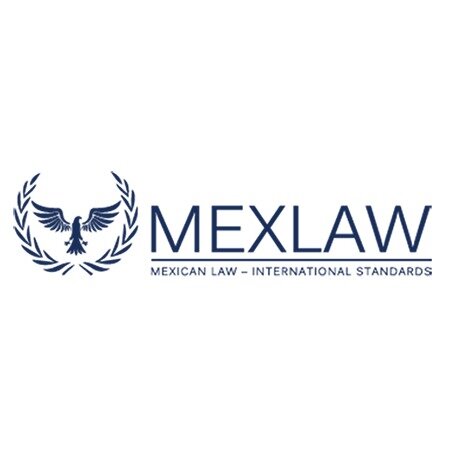Best Nonprofit & Charitable Organizations Lawyers in Mérida
Share your needs with us, get contacted by law firms.
Free. Takes 2 min.
List of the best lawyers in Mérida, Mexico
About Nonprofit & Charitable Organizations Law in Mérida, Mexico
Mérida, a vibrant city known as the cultural capital of Yucatán, Mexico, has a rich environment for nonprofit and charitable organizations. The legal framework governing these entities is designed to ensure transparency, accountability, and alignment with their altruistic goals. Nonprofit organizations, generally referred to in Mexico as “associations civiles” or “foundations,” aim to support various causes such as education, health, and community development without pursuing profit as their main goal. While establishing a nonprofit, complying with local regulations and national laws, including the federal civil codes and tax regulations, is crucial.
Why You May Need a Lawyer
Engaging a lawyer knowledgeable in nonprofit law can be essential for many reasons. Here are some common situations where legal help might be needed:
- Forming a nonprofit organization: Drafting articles of incorporation and bylaws to ensure legal compliance.
- Tax-exempt status: Navigating the application process for federal and state tax exemptions.
- Governance issues: Ensuring adherence to proper governance practices and handling internal disputes.
- Compliance: Maintaining compliance with ongoing reporting requirements and changes in the law.
- Contractual agreements: Drafting and reviewing contracts with donors, employees, or service providers.
- Fundraising regulations: Adhering to laws related to soliciting donations and financial transparency.
Local Laws Overview
The local legal environment for nonprofits in Mérida intersects with national laws, with specific attention to:
- The Federal Civil Code: Governing the formation and functioning of civil associations and foundations.
- The Ley de Fomento a las Actividades Realizadas por Organizaciones de la Sociedad Civil: A law encouraging activities by civil organizations, providing a framework for operation and governmental collaboration.
- Fiscal regulations: Managed by the Servicio de Administración Tributaria (SAT), which dictates tax obligations and privileges of nonprofits.
- State regulations: Local laws might impose additional compliance elements unique to the State of Yucatán.
Frequently Asked Questions
What is the first step in creating a nonprofit organization in Mérida?
The first step is to define the purpose of your organization and draft your articles of incorporation, followed by registration with the Mexican Ministry for the incorporation of civil associations.
Do nonprofits in México need to have a board of directors?
Yes, civil associations must have a board of directors (or its equivalent), which holds the responsibility of governing the organization following its bylaws and fiduciary duties.
Are nonprofits in Mérida required to pay taxes?
While nonprofits can apply for tax-exempt status, they must adhere to specific reporting and organizational requirements to maintain this status.
How can a nonprofit in Mérida solicit donations?
Nonprofits must adhere to fiscal regulations for fundraising, which include compliance with transparency obligations and informing donors about the use of funds.
What are the ongoing compliance requirements for nonprofits in Mérida?
Nonprofits are required to file regular financial reports, hold board meetings, and ensure all activities align with their stated mission and legal obligations.
Can a nonprofit distribute its surplus to members or directors?
No, any surplus generated by nonprofit activities must be reinvested to further the organization's goals and cannot be disbursed to members or directors.
Is legal assistance required for drafting bylaws?
While not mandatory, it is highly recommended to consult a lawyer to ensure bylaws comply with legal standards and address governance and operational needs.
What role does the Mexican government play in regulating nonprofits?
The government oversees compliance through agencies such as the SAT and local government departments to ensure nonprofits operate legally and contribute positively to society.
Are there specific laws that address nonprofit employment practices?
Yes, nonprofits must comply with Mexican labor laws, which include fair employment practices, social security contributions, and employee rights.
Can international NGOs operate in Mérida?
Yes, international NGOs may operate in Mérida, but they must register and comply with Mexican nonprofit laws, including those concerning foreign funding and activities.
Additional Resources
Several resources are available for individuals seeking more information or assistance regarding nonprofit organizations in Mérida:
- Servicio de Administración Tributaria (SAT): Manages fiscal obligations, including those for nonprofits.
- Registro Público de la Propiedad y del Comercio: Assists with the registration of civil associations.
- The Centro Mexicano para la Filantropía (CEMEFI): Provides resources and advocacy for civil society organizations in Mexico.
- Pro Bono Legal Networks: Offer volunteer-based legal assistance for nonprofit organizations.
Next Steps
If you are seeking legal assistance for a nonprofit or charitable organization in Mérida, consider these steps:
- Define your organization's mission and goals clearly.
- Compile necessary documents, such as identification, proposed bylaws, and details of board members.
- Consult with a lawyer or legal advisor specializing in nonprofit law to guide you through the setup process and ongoing compliance.
- Reach out to local nonprofit networks or associations for additional support and guidance.
- Stay informed on any changes in local or federal laws that might affect your organization.
Lawzana helps you find the best lawyers and law firms in Mérida through a curated and pre-screened list of qualified legal professionals. Our platform offers rankings and detailed profiles of attorneys and law firms, allowing you to compare based on practice areas, including Nonprofit & Charitable Organizations, experience, and client feedback.
Each profile includes a description of the firm's areas of practice, client reviews, team members and partners, year of establishment, spoken languages, office locations, contact information, social media presence, and any published articles or resources. Most firms on our platform speak English and are experienced in both local and international legal matters.
Get a quote from top-rated law firms in Mérida, Mexico — quickly, securely, and without unnecessary hassle.
Disclaimer:
The information provided on this page is for general informational purposes only and does not constitute legal advice. While we strive to ensure the accuracy and relevance of the content, legal information may change over time, and interpretations of the law can vary. You should always consult with a qualified legal professional for advice specific to your situation.
We disclaim all liability for actions taken or not taken based on the content of this page. If you believe any information is incorrect or outdated, please contact us, and we will review and update it where appropriate.

















